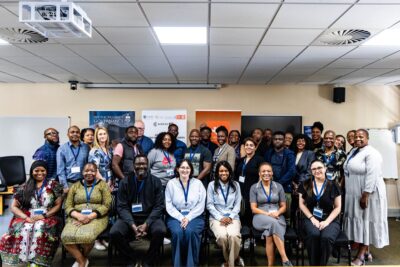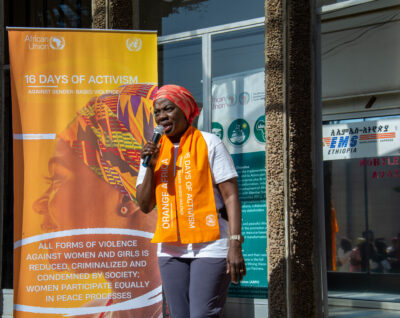The Covid-19 pandemic has forced a reckoning with the deep inequalities in the United States. Racism and poverty are life-and-death matters. But the virus also reveals what has long been unraveling in this country—a universal approach to the provision of public goods, infrastructures, and services. As an anthropologist who works on infrastructural politics in Lebanon and lives and teaches in California, I realize there are deep vulnerabilities that come with fragmented, patchwork approaches to the provision of essential services. Not only does the United States lack a public system that guarantees medical care, but there has been a lack of basic coordination between federal, state, and local jurisdictions. As state governors scramble to expand testing and obtain personal protective equipment (PPE) and ventilators, the president tells them to “try getting it yourselves.” This federal inaction on Covid-19 stands in stark contrast to the immediate mobilization of the national guard to suppress ongoing protests sparked by the murder of George Floyd by the Minneapolis police. In the context of this federal vacuum in relation to Covid-19, California, Oregon, and Washington have created a “western states pact” that aims to coordinate health guidelines. States in the northeast have joined together to consolidate buying power for PPE.
Despite these ad hoc regional alliances, the absence of a coordinated, national response has left individual hospitals to grapple with transnational supply chains on their own. One harrowing letter in the New England Journal of Medicine describes the convoluted way in which a hospital imported PPE and how it was nearly seized by federal agents. The doctor ends the letter with a question that registers shock at the level of disarray: “Did I foresee, as a health-system leader working in a rich, highly developed country with state-of-the-art science and technology and incredible talent, that my organization would ever be faced with such a set of circumstances?”
The coronavirus can infect anyone, but the absence of universal public programs and the lack of a broad federal approach exacerbate existing inequalities within the United States, making some people more vulnerable to contagion, death, homelessness, and joblessness—especially along race and class lines. As Keeanga-Yamahtta Taylor writes, “black vulnerability is especially heightened by the continued ineptitude of the federal government in response to the coronavirus.” These spatialized inequalities are made clear within the context of one city, New York. Rates of infection were higher in working-class neighborhoods in Queens where people live in closer quarters and are less likely to be able to stay home from work, than in the wealthy Upper East Side of Manhattan.
These spatial inequalities are evident well beyond regional, state, or city health infrastructures. Some of the largest spikes of Covid-19 cases are concentrated in prisons, nursing homes, and meat-packing plants across the country. Racialized mass incarceration and a lack of workplace protections and universal health care are issues that affect and implicate many regions and institutions. Through the stroke of a pen, President Trump ordered that meat-packing plants remain open under the Defense Production Act. There has been no such action on the federal level to address deadly workplace conditions or, ironically, given that the act was invoked to protect the food supply chain, even to remedy food insecurity. Without a coordinated federal response that includes expanded access to testing, PPE, and medical equipment, these spatialized inequalities will continue to have deadly consequences.
The chaotic government response to Covid-19 in the United States reminds me of that often-heard phrase in Lebanon, uttered whenever something breaks down: “Wayn al dawleh?” (“Where is the state?”). Like that of the United States, Lebanese infrastructure is also crumbling and uneven. The evidence of breakdown is everywhere: the streets in the capital city of Beirut flood during rain, garbage is thrown in improperly prepared informal landfills, and the coastline is polluted by runoff. The national electricity grid, a public utility, cuts for three hours a day in the capital of Beirut, and much longer outside of the city’s boundaries.
Resentment over Lebanon’s uneven infrastructures has been building over a number of years. In 2015, after years of calling on the government to remediate an informal landfill in a town outside of Beirut, residents blocked access. The private sanitation firm responsible for collecting Beirut’s garbage was unable to do so. As trash piled up, frustrated protestors, many of them organized as the #youstink movement, took to the streets, calling for government officials to take accountability for this and other infrastructural failures. Garbage became a symbol of the state’s failure to manage even its most critical infrastructures.
“Where is the state?” protestors asked, amid brutal suppression. A call for universal access to functioning public services through national government infrastructure, rather than through private contractors or membership in a sect or residence in a particular neighborhood, animated some of the protestors’ urgent demands. Many Lebanese are weary of the patchwork system of infrastructure and service delivery. Service interruptions are not merely inconvenient in Lebanon; they are part of everyday life, cutting across class lines but with disproportionate impact on working class people who struggle to pay multiple utility bills. Electricity cuts leave people on low-wattage, unreliable generator power for hours without air conditioning during heat waves, without elevator service, and without the ability to do laundry.
All around Lebanon, people are left with two electricity bills: one to the national public utility, Electricité du Liban,and another to their local generator owners who make huge profits off of this privatized, shadow infrastructure. While the town of Zahle has their own 24/7 microgrid, most of the country remains caught between a national grid that does not work and generators that are expensive, unsustainable, and inconvenient. In working-class urban areas like Bourj Hammoud, the center of much of my ethnographic research, the municipality even sets a fixed price across all of the generator subscription services. In the absence of universal access to electricity and other utilities, localized sectarian geographies influence how infrastructures are built or maintained and who or what entities dominate or profit from these industries.
This unevenness in service has led to a permanently temporary patchwork arrangement, a post-grid reality that is both present and future. This reality is not confined to the so-called developing world but is also in the United States, in places like Flint, Michigan, that lack potable water. In Lebanon, people rely on subscriptions to generator services owned by people with the right connections, usually to a locally dominant sect-affiliated political party. While this fact makes Lebanon appear unique, in many ways it is not exceptional. In California, private utilities like PG&E dominate the energy sector, while their failing electricity infrastructure has been linked to deadly fires. Lebanon’s system reflects a logic of hyperlocal distribution, one in which the state does not step in to coordinate, maintain, or expand public goods. Lebanon’s disintegration during a fifteen-year civil war (1975–1990) bears only some responsibility for this arrangement. Rampant privatization in the postwar era is another reason it has continued, even accelerated. Many industries in the United States are also profiting from the lack of state-federal coordination, the American private health insurance industry is one major example.
In the absence of a functioning national grid, Lebanese secure access to electricity and medical care through sectarian political parties and organizations. These entities act as channels to vital services in particular regions or municipal areas. What we might call sectarianism is inextricable from the everyday ways that people obtain basic services, where they get their electricity, and, importantly, the geographies in which they feel a sense of belonging. The relationship between infrastructures, geographies, and political sectarianism helps to undermine the notion that sectarian identity and conflict between political parties in Lebanon is fundamentally connected to religious difference or theology. In fact, one does not have to be religious, practicing, or pious to identify as a member of a religious sect.
Lebanon’s fragmented infrastructures and distribution of services demonstrates what we might call a post-grid imaginary, in which the failure of the grid and the emergence of patchwork solutions leads to uneven access and sustains and reproduces spatial inequality. The federal and national government responses to Covid-19 in the United States demonstrate even more gravely and immediately that Americans live in this imaginary too. The vacuum left by a lack of coordinated federal responsibility has left health care infrastructures in shambles. Access to clean water and broadband internet, two essential services in the pandemic, are unevenly distributed across this country, despite its collective wealth. Perhaps in this context we can understand the turn to GoFundMe campaigns to pay for medical emergencies, a kind of ad hoc mutual aid initiative to compensate for an absent state. This looks a lot like what happens under structural adjustment.
In Lebanon citizens address resource and infrastructure inequalities by mobilizing to secure necessary services through sectarian organizations, but also through neighborhood networks that cut across sectarian lines. Likewise, mutual aid networks in US cities try to account for the major gaps in public services and social welfare. Some argue that these efforts may lay important groundwork in forming solidarity networks in the struggle for demanding better public, universal services. These mutual aid networks are not as visible as the anti-lockdown protestors, who assemble at state capitals and beaches demanding a return to the status quo. But mutual aid networks and the forms of solidarity they create may indeed be more important than many realize. Many did not expect Lebanon’s 2015 garbage protests to be so broadly attended and so decidedly non-sectarian in its calls for better infrastructure and more transparency in government processes.
A post-grid imaginary is inadequate for dealing with a pandemic. Ultimately Covid-19 tests our fragile, fragmented infrastructures—whether in Lebanon or the United States or elsewhere—and the differentiated access they provide to lifesaving resources. The virus moves easily across cities and states. But without a functioning grid, including a universal public health program and broad coordination across government agencies, we are no match for it.













